On June 9, 2022, the GPSC will host a province-wide virtual knowledge exchange on providing culturally safe and relational ways to deliver primary care to Indigenous peoples and communities.
Keynote speaker N’alaga, Avis O’Brien will share her personal journey as a Haida and Kwakwaka’wakw woman, highlighting the intersectionality of colonial genocide, systemic separation from Indigenous identity, land and culture, and the mental health and addiction struggles that come as a result. She will also discuss how Indigenous Peoples can heal through a connection to land and culture. Physicians will be offered tangible tools for offering health care that is rooted in belonging and cultural safety.
Harley Eagle, MA, is Dakota and Ojibway, and a member of Whitecap Dakota First Nation. As an Indigenous facilitator and consultant, he will continue the session providing focused learning on cultural safety, Indigenous peoples' history, colonization, and how to take a decolonized approach to trauma-informed practice, understanding systemic racism and what it might take to address it.
The session will include a panel discussion based on questions from attendees, with a focus on:
- Understanding the impact of culturally unsafe and culturally safe care.
- Identifying tangible resources and tools to support practitioners in providing trauma informed health care rooted in belonging and cultural safety.
- Formulating ways to create space in the health care system to better meet the primary care needs of Indigenous Peoples.
Please note: The keynote’s story is one of trauma. This story may trigger personal stories and participants will need to prepare to hear this difficult journey. If additional supports are needed, please contact:
- 24-hour crisis phone service: 1 800 784-2433.
- Indigenous support line: 1 800 588-8717.
- Métis support line: 1 833 638-4722.
SPEAKERS
Please click on name for biography.
nalaga / kaaw kuuna (avis o'brien)
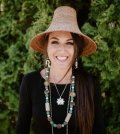
Nalaga / Kaaw Kuuna (Avis O’Brien), a Haida/Kwakwa̱ka’wakw artist and Land-Based Cultural Empowerment Facilitator, was born in Alert Bay, BC. She belongs to the Kaa’was Staa’stas Eagle Clan from the Village of K’yuusda in Haida Gwaii and the Giga̱l’ǥa̱m Namima of the Lig̱wiłda’x̱w people from Cape Mudge, one of the 18 Tribes of the Kwakwaka’wakw.
She is a weaver, teacher, singer, dancer, and land-based cultural empowerment facilitator. She started her company Nalaga Consulting in 2013 as a way to share the cultural knowledge and beauty of cedar bark weaving with the world. Cedar bark weaving has been her connection to the rich culture of the Haida and Kwakwa̱ka̱’wakw, and has also been a doorway for her into cultural empowerment facilitation. Cedar bark weaving has been part of the culture of the peoples of the Northwest Coast for thousands of years; it was and continues to be an integral part of the culture. Her jewelry, baskets, and hats represent an important continuation of the ancient legacy of Northwest Coast woven adornment. Avis fuses age-old techniques with modern style to create products that can be shared with the world.
Avis offers Community Land-Based Healing Workshops that are rooted in Decolonization, Reconciliation, Indigenous Land-Based Healing and Breath & Embodiment Practices. Her work aims to highlight the intersectionality of Colonialism, Impacts of trauma, Indian Act, residential schools and how we can utilize Ancestral forms of healing to regain a sense of balance and harmony in body, mind, and spirit. Drumming, singing, dancing, medicine harvesting, ceremony, weaving, breath & embodiment practices are utilized as self regulation tools, guiding folks down the path of neurdecolonization. Her work within Non-Indigenous communities has a focus on building Allyship and dismantling racist stereotypes against Indigenous folks.
The name Nalaga comes from the Kwakwak’wakw peoples of the Northwest Coast and was placed on her through her Giga̱l’ǥa̱m Namima’s Treasure Box. Nalaga means Bringer of Daylight or Woman of Light in Kwak’wala. This name has been passed down in her family for generations. Avis has an important responsibility when carrying this name: to carry herself in a way in which reflects sharing her light with the world.
The name Kaaw Kuuna translates to One Who Sits Great in Xaad Kil, language fo the Haida Peoples. She is preserving her culture and traditions as a way to fulfill her social and cultural responsibilities of her traditional names, and doing her best to make her Haida & Lig̱wiłda’x̱w Ancestors Proud in the ways she carriers herself in the world.
harley eagle
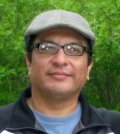
Harley Eagle is Dakota and Ojibway, and a member of Whitecap Dakota First Nation. He looks to Indigenous life ways to guide his work as a Cultural Safety consultant. His experience includes working for the Island Health Authority as a Cultural Safety Facilitator, consulting and training in the fields of transforming conflict, anti-racism, dismantling oppression, cultural safety and trauma healing. He is often invited to speak at conferences both nationally and internationally and works with clients across several sectors. Harley holds a Master of Arts in Conflict Analysis and Management and resides on Vancouver Island.
Elder Syex̱wáliya (Ann Whonnock)
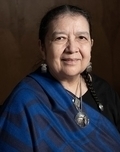
Elder Syex̱wáliya (Ann Whonnock) from the Skwxwu7mesh Uxwumixw (Squamish Nation) is a Squamish Nation elected Councillor and Elder/Knowledge Keeper. Syex̱wáliya recently completed her Master of Business Administration, Indigenous Business and Leadership at Simon Fraser University and holds a Bachelor of Business Administration from Capilano University. Syex̱wáliya, through the teaching of her late grandparents, works to share Squamish Nation cultural protocols and teaching to future generations.
PANELISTS
Please click on name for biography.
dr dana hubler
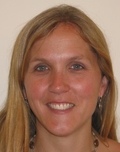
Dana was born as a settler in the traditional territory of the Tsimshian people and she is now raising her family on the lands of the K’omoks Nation. As a family physician and as a citizen of this country, she is committed to doing her part to create a kinder and more equitable healthcare system. She has worked as a rural family physician for the past 18 years, enjoying the joys and challenges of medicine at the end of the road. Her clinical work as a family physician is now primarily with the FNHA and she is also a UBC Rural CPD medical director, Island Health PQI physician advisor and RCCbc Real Time Virtual Support faculty development co-lead. When at play, you can find her growing food or flowers, hiking or whipping up some yummy food for her family.
dr raymond chaboyer
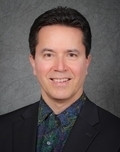
Dr Raymond Chaboyer is of Cree First Nations ancestry and grew up in the shared territory of the Swampy Cree people and Polar Bears in Churchill, Manitoba. Dr Chaboyer worked as an ER Physician in Winnipeg and then as a Fly-in Physician in northern Manitoba Cree communities prior to beginning practice in North Vancouver. In addition to working in his private practice, Dr Chaboyer proudly serves the Coast Salish people in working out of both the Tsleil-Waututh and Squamish Nation clinics. Dr Chaboyer is the Board Chair of the North Shore Divisions of Family Practice and is a spokesperson for the First Nations and Aboriginal Primary Care Network. Dr Chaboyer is a strong advocate for delivering excellence in culturally sensitive trauma informed care to First Nations patients and is proud to have been delivering medical care to First Nations patients for more than 30 years. Dr Chaboyer remains active in ice hockey and many other sports and is hoping to one day fully decipher the mysteries within the guitar fretboard. He enjoys classic rock and country music and can sometimes be seen singing Johnny Cash songs with his treasured Elder patients.
dr rebekah eatmon
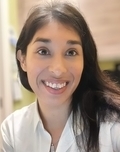
Dr Rebekah Eatmon, BHK MD CCFP is an Indigenous Family Physician serving both urban and rural Indigenous peoples. She is Tsimshian from Lax Kw’alaams, from the Raven Clan on her father’s side and Métis on her mother’s side. She works for Lu’ma Medical Centre in Vancouver, as well as Carrier Sekani Family Services in Northern BC, where she is proud to deliver culturally safe care to her patients. She is the Indigenous Physician Lead for the BC College of Family Physicians, working to embed Cultural Safety and Humility into BCCFP’s work. At present she is also an Indigenous Advisor at the Centre for Excellence in Indigenous Health at UBC, helping to expand cultural safety training and support at UBC.
Leslie Bonshor
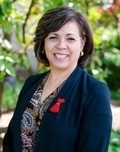
Leslie Bonshor was appointed as Vice President of Indigenous Health, VCH, in May 2021. She is a member of Tzeachten First Nation.
Leslie is a member of the VP Indigenous Health standing committee and partners with First Nations Health Authority in supporting mandate priorities and health services to improve wellness and care needs of the Indigenous population. She leads a team that provides system level support as VCH advances through a transformational change into a more culturally safe organization.
Accreditation information:

- Disclosure statements summary (PDF).
-
Certification statement: The University of British Columbia Division of Continuing Professional Development (UBC CPD) is fully accredited by the Committee on Accreditation of Continuing Medical Education (CACME) to provide study credits for continuing medical education for physicians. This program meets the certification criteria of the College of Family Physicians of Canada and has been certified by UBC CPD for up to 5.5 Mainpro+ Group Learning credits. Each physician should claim only those credits accrued through participation in the activity.
CFPC Session ID: 197413-001
